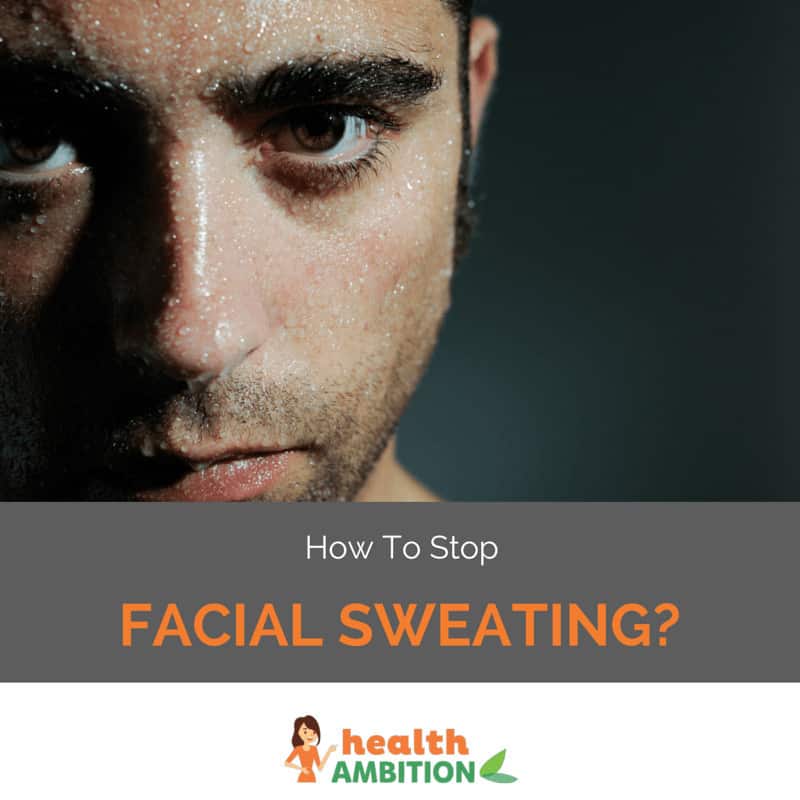
Excessive facial sweating can be an awkward and embarrassing problem. Sweating too much, particularly in the facial region, can lead to constant questions from those around you. Having to explain over and over again why you’re sweating when it isn’t really cold and you haven’t exerted yourself gets old fast.
The good news is, there are both over the counter remedies and medical interventions that can help stop facial sweating.
Why Do We Sweat?
In a nutshell, sweating is the human body’s mechanism to cool itself. When your body temperature rises, your nervous system sends signals to your sweat glands. This triggers sweat secretion onto your skin, which then evaporates and cools the surface effectively.
Is Excessive Facial Sweating a Medical Condition?
Excessive sweating is known as hyperhidrosis, though that doesn’t refer to the face specifically. Hyperhidrosis causes extreme sweating in the palms, feet, armpits, and/or face area, including the scalp and neck.
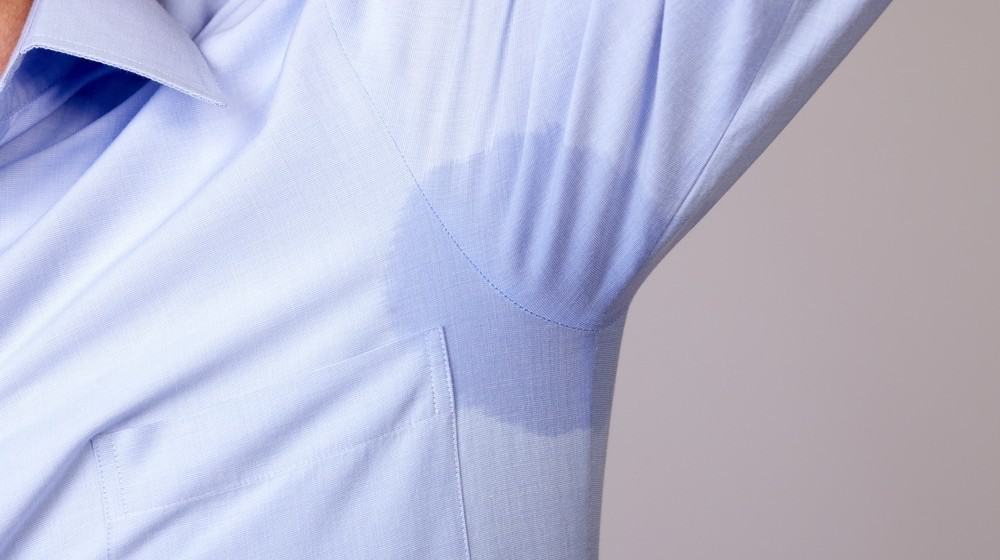
There are many reasons why a person may develop hyperhidrosis. The causes may be hereditary, related to nervous system issues, anxiety, or simply a result of heat and exercise. There are two types of hyperhidrosis: primary and secondary.
Secondary hyperhidrosis is caused by an outside factor such as medication or an underlying disease. Secondary hyperhidrosis is more likely to affect the whole body, or at least larger areas.
Primary hyperhidrosis is excessive sweating that has no outside cause. When doctors can’t find another explanation for the condition, it’s usually labelled primary hyperhidrosis.
What Causes Facial Sweating?
Though no gene markers or other hereditary factors have been pegged as causing hyperhidrosis of the face, many doctors believe that its cause could be hereditary. They make this assumption based on the fact that the condition seems to affect multiple people in families.
Heat and exertion are normal causes of sweating. In some people, though, they cause excessive sweating.

Anxiety is another trigger for this condition, along with other mental health issues. It makes sense that overactivity of the nervous system associated with anxiety could cause the sweat glands to overproduce as well.
Some medical conditions can cause excessive facial sweating. Some examples are hormonal imbalances, overactive thyroid, diabetes, low blood sugar, heart attack, some types of cancer, and infectious diseases.
Diagnosis
There are several tests that can be carried out to find out if you have hyperhidrosis. Your doctor will determine whether a starch-iodine test (uses a powder to determine where sweating is occurring), a paper test (special paper is used to measure perspiration), or blood tests should be used.
As is almost always the case when it comes to your health, you should consult your doctor before making any decisions about facial sweating. This condition may signify one of the serious health conditions I listed above. Checking with a doctor could save your life!
Home Remedies to Treat Facial Sweating
As is the case with many symptoms and conditions, there are several home remedies described online. Some people have achieved great results. If you are plagued by excessive facial sweating these remedies may be worth a shot. However, I must note that scientific evidence for many of these treatments is shaky so your mileage may vary.
1. Green Gram Dal
A legume frequently used in Indian cuisine, green gram dal has been successfully used to treat excessive facial sweating. You can simply ground up the legume and make a facial paste using a teaspoon of milk. This is said to help control the condition for up to fifteen days.
2. Cucumber Juice
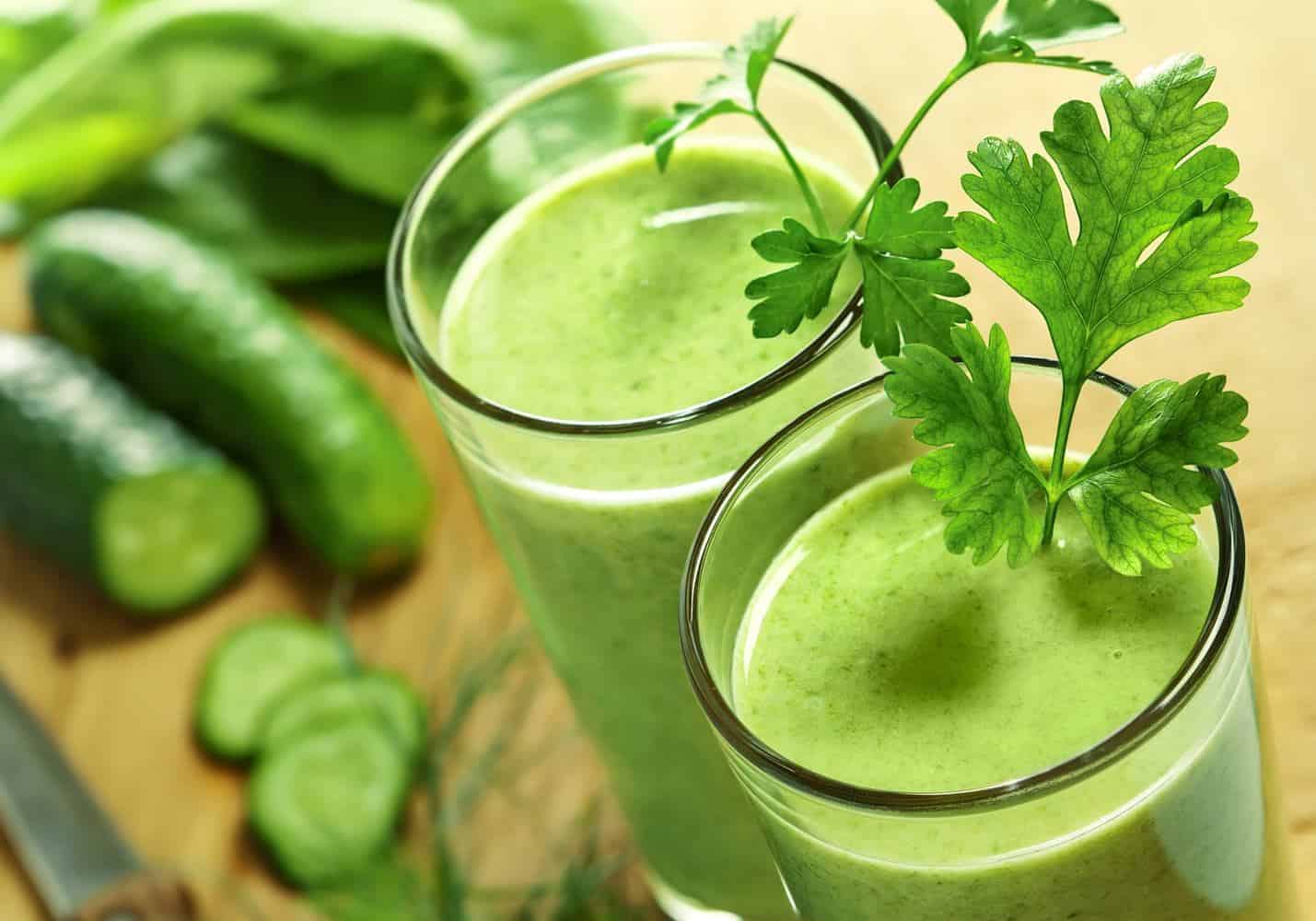
A naturally cooling, soothing, and anti-inflammatory substance, cucumber is used to soothe a multitude of facial issues, including facial sweating. Simply juice a fresh cucumber and soak a cotton pad in the resulting juice and swipe on the skin to keep your face cool and sweat-free for hours!
3. Cucumber Slices
You’ve seen it in the movies. Maybe you’ve even tried putting cucumber slices on your eyes to relax and rejuvenate the region. Placing slices of this antioxidant-rich veggie on the rest of your face is said to potentially reduce excessive sweating. It’s all around great for your skin too!
4. Ice
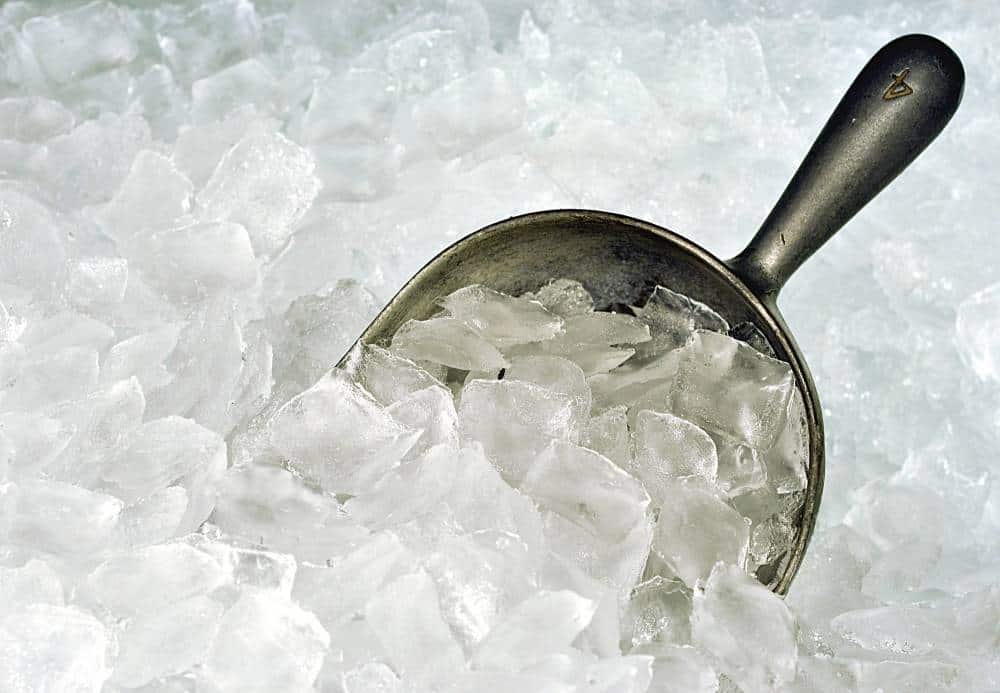
Simply placing ice in a clean, soft cloth and rubbing it over your face may help to reduce sweating. By naturally and physically cooling the face, you can help shut down sweat gland production. Essentially, you’re tricking the nervous system into believing that you are not too hot and sweating isn’t necessary.
5. Talcum Powder
Some people use talcum powder to reduce facial hyperhidrosis. The powder helps to soak up excess moisture and is said to make the sweat glands less active. It’s said that even a good quality loose powder makeup will do the trick.
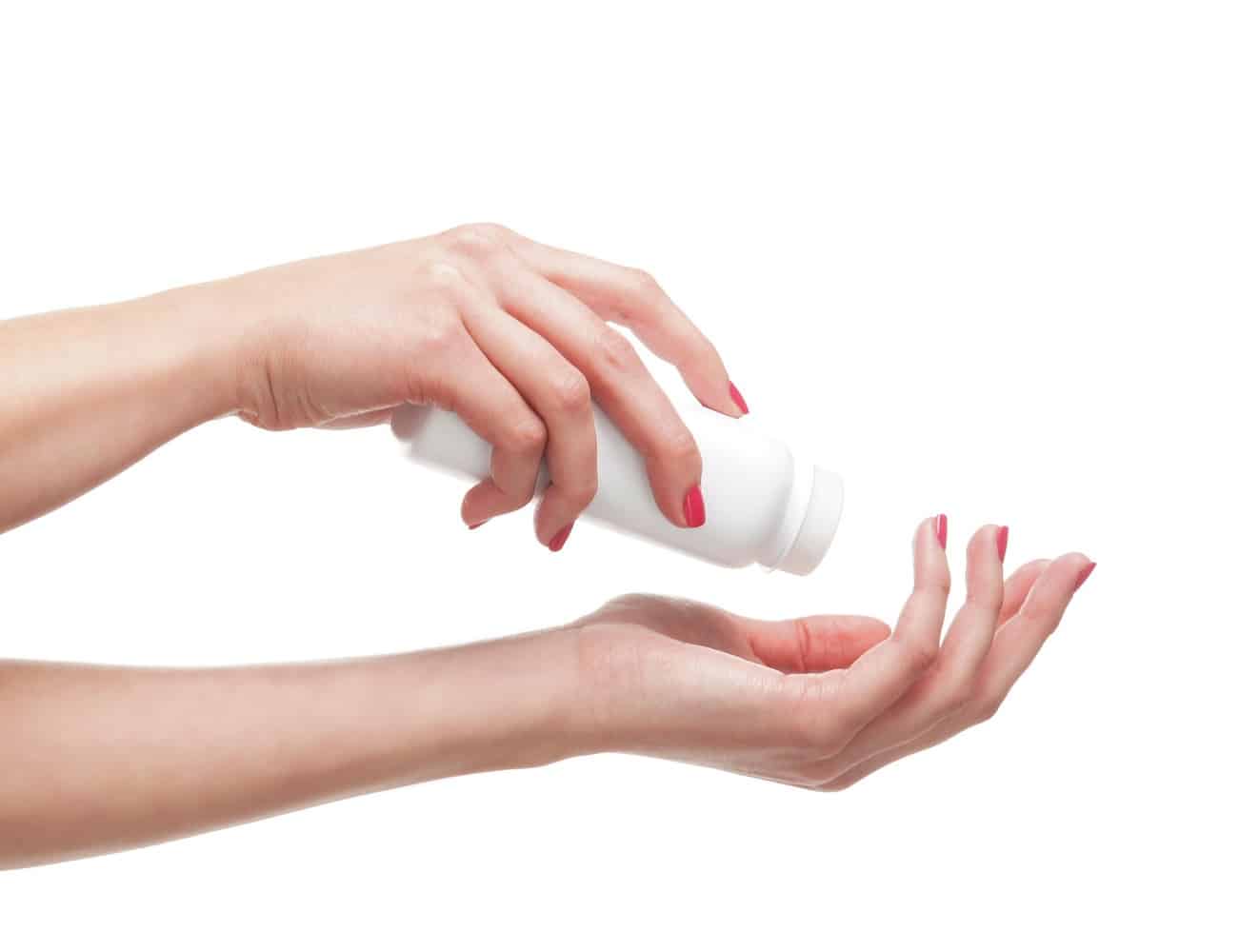
Though talcum powder has been widely used for a multitude of issues in the past, there are some questions lately as to whether it is safe for use. Some talc may naturally contain asbestos, a carcinogen. Talcum powder can easily get into the lungs, which can be detrimental. Use this product with caution.
6. Diet to Help Control Sweating
Eating a healthy, well-balanced, unprocessed diet helps with many health conditions. Eating well provides your body with the vitamins, minerals, and healthy calories your body needs to function at peak condition.
7. Drink Fresh Buttermilk
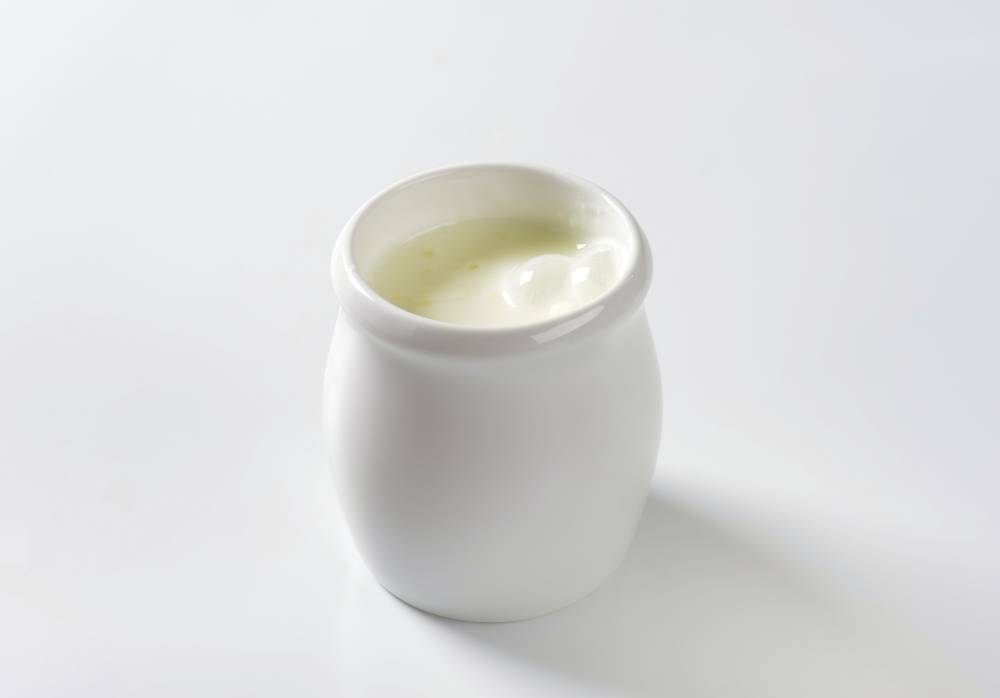
The nutrients B12, calcium, and potassium are very important in keeping your body working well. Buttermilk is said to aid digestion, which is closely related to skin health. It is also said to help reduce body temperature. A reduction in body temperature is one of the key factors in stopping sweating.
8. Start Juicing
Fresh juice is a great way to get your body all the nutrients it needs and to stay hydrated. Taking in enough nutrients and liquids are important factors in keeping skin healthy, and healthy skin can help eliminate excessive sweating.
9. Ensure a Balanced Sodium Intake
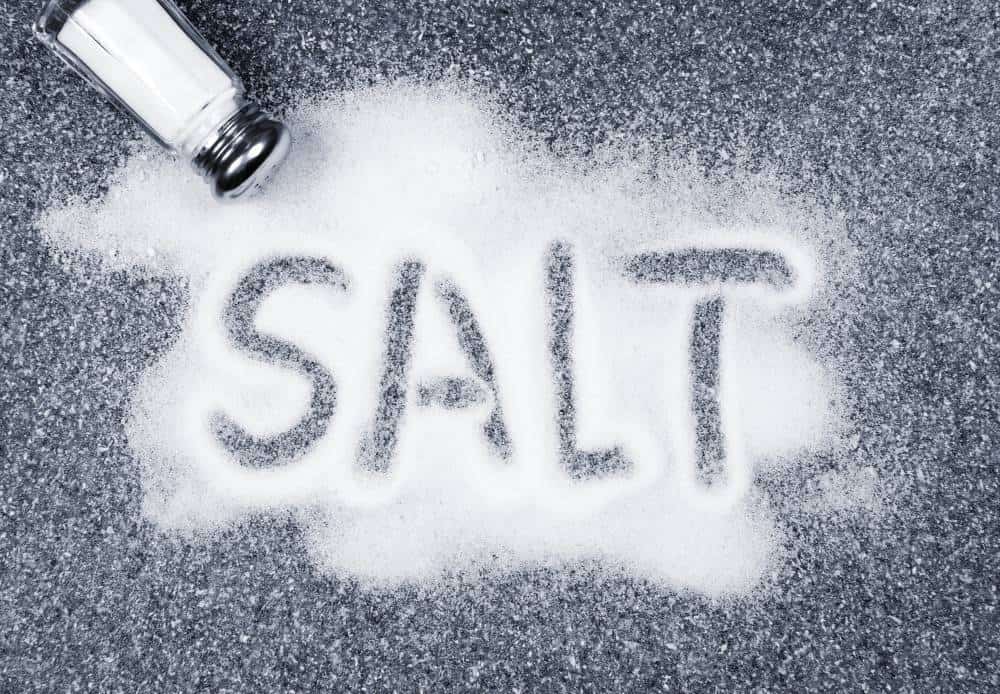
Sodium helps to control hydration levels in your body. Taking in too much or too little sodium can be detrimental. Sweat contains sodium, so sweating too little or not enough might affect the levels of sodium present in the body.
Things to Avoid If You Suffer From Facial Hyperhidrosis
There are some habits and foods that you can avoid to help curb facial sweating. Though you may not notice a difference just by cutting out these things, they may work well in conjunction with some of the other suggestions in this article.
Heavy Facial Products
Facial creams, moisturizers, and lotions may contribute to excessive sweating. If the products don’t absorb into the skin well or cause pores to clog, they may not allow the skin to breathe well. This could raise the temperature of skin and prevent normal sweating from working, causing more sweating.
Excessive Heat
This may seem like common sense, but if you suffer from extreme sweating, avoiding high temperatures and direct sunlight may help. Keeping the skin temperature lower will keep the nervous system from triggering the sweat glands.
Spicy Food
Spicy food can cause extreme sweating. Though this likely isn’t the cause of your excessive sweating, avoiding spicy foods may help to keep sweat glands more inactive.
Alcohol
Alcohol can also cause sweating. The facial flushing and increased body temperature that comes with the consumption of alcohol will likely increase excessive sweating, so it should be avoided.
Heavy Non-Breathable Clothing
Clothing that traps sweat and increases body temperature can be detrimental in the treatment of hyperhidrosis. You should not wear heavy fabrics that trap moisture, opting for light-weight breathable garments instead. Natural fabrics rather than synthetics are ideal.
Over The Counter Products to Treat This Condition
There are several over the counter products on the market to help prevent excessive facial sweating. They vary widely in price, so I suggest trying the cheapest products first if you’ve just started searching for an OTC remedy to this problem.
Sweat Block Wipes
Sweat Block Clinical Strength Antiperspirant wipes can help control facial sweating for up to seven days per application. Though the product was not made specifically for the face, plenty of Sweat Block customers’ reviews say they use the wipes on their faces with great efficacy.
DERMAdoctor Med E Tate Antiperspirant Wipes
Like the Sweat Block wipes, these Med E Tate wipes aren’t intended for the face, but there are plenty of reviews to suggest that they have been used successfully in the treatment of the face, as well.
Medical Interventions
If you’ve tried home remedies and over the counter products for facial sweating to no avail, it may be time to see your doctor about medical interventions. There are several options, some more extreme than others.
Prescription Topical Medications
Prescription strength antiperspirants may be a safe and effective treatment for this condition. This is likely one of the first things your doctor will try as it is one of the safest medical interventions they can offer.
Botox Injections
Some dermatologists are using Botox injections to treat facial hyperhidrosis. This treatment helps prevent the nerves from relaying signals that cause the sweat glands to produce sweat. The effects last several months.
Anticholinergic Drugs
When other treatments have not been effective, your doctor may prescribe an anticholinergic drug which can stop sweat gland activity. There are some major side effects associated with this classification of drugs, so they are also only used as a last resort.
These medications are not approved by the FDA to treat excessive sweating. This means they have not been studied enough or proven to work well in this use. That is definitely something you’ll want to consider before using them.
These medications may cause urinary system disruption, blurry vision, and heart problems like palpitations. Since these are potentially severe side effects, the gain would need to outweigh the risk for this to be an ideal treatment plan for you. Discuss with your doctor if you’re unsure.
Endoscopic Thoracic Sympathectomy
ETS is a surgery used only in the most stubborn cases of hyperhidrosis, and is rarely used in cases of facial sweating. In this surgery, a very small incision is made and the nerves that activate the sweat glands are severed.This surgery is a last resort, especially in hyperhidrosis of the face. Sweating in other areas is likely to increase, making the side effects rather undesirable.
Sweat Gland Removal
Also uncommon in the treatment of excessive facial perspiration, sweat gland removal is only used in patients who haven’t responded to other treatments. This surgery isn’t very practical in the facial area for obvious reasons.
Treating the Cause of Hyperhidrosis
When excessive sweating is a symptom of another condition (secondary hyperhidrosis), treating the root cause may provide you with relief. For example, sweating caused by diabetes may be alleviated by getting blood sugar levels under control.
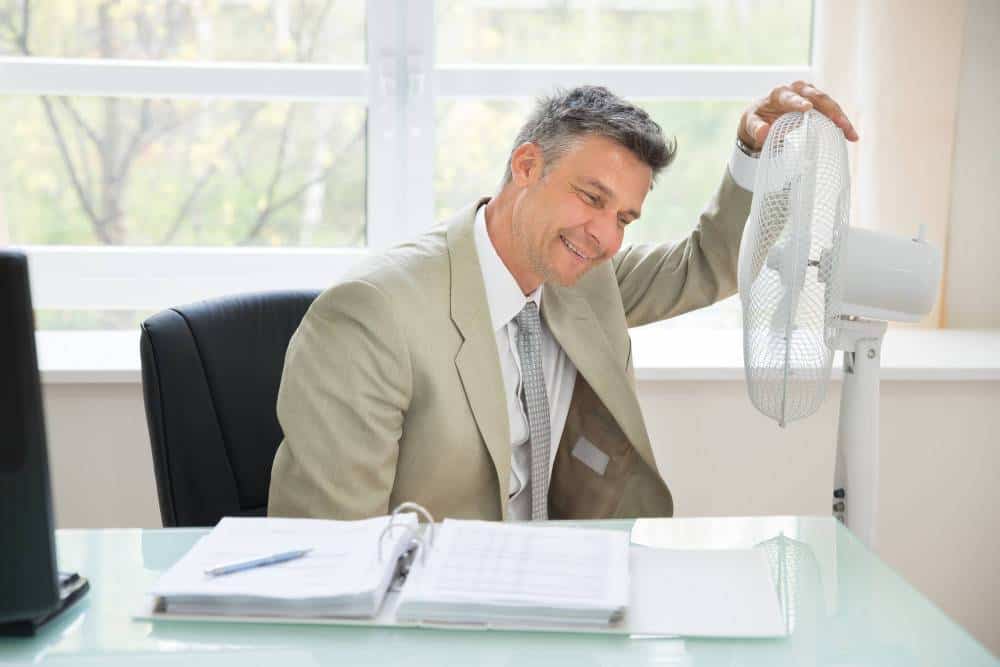
Final Thoughts on How to Stop Facial Sweating
There are options for treating facial sweating. First, see your doctor to rule out underlying causes. Then try out some home remedies to see if they work for you. If giving some over the counter products a shot doesn’t work, medical treatment may be the right option for you.
With all the options out there, it’s important not to lose hope. If you have any questions about treating this condition, leave a comment and I will do my best to help you out!
Leave a comment